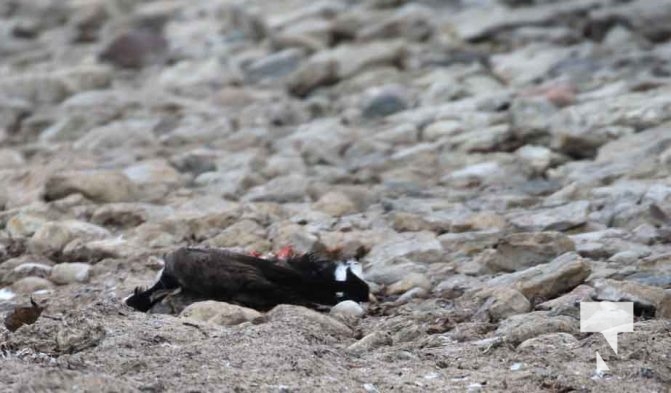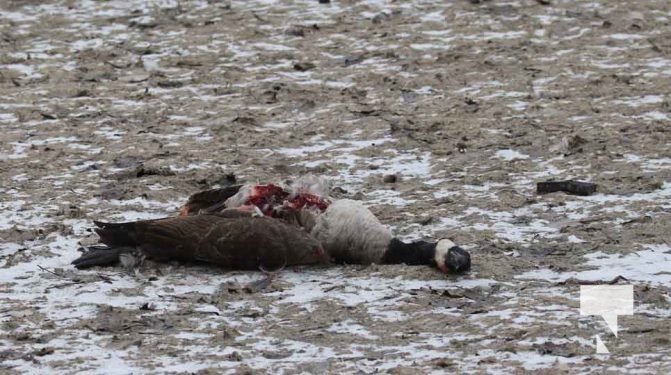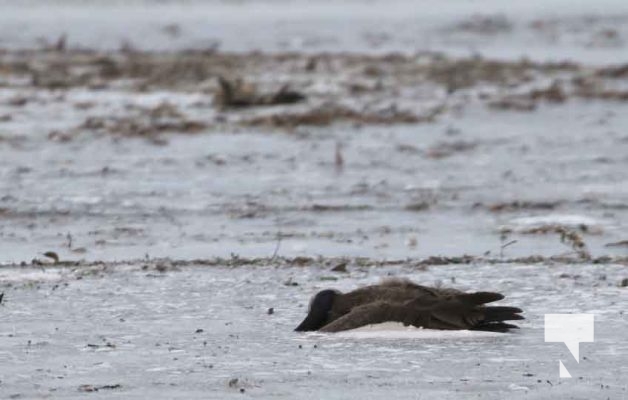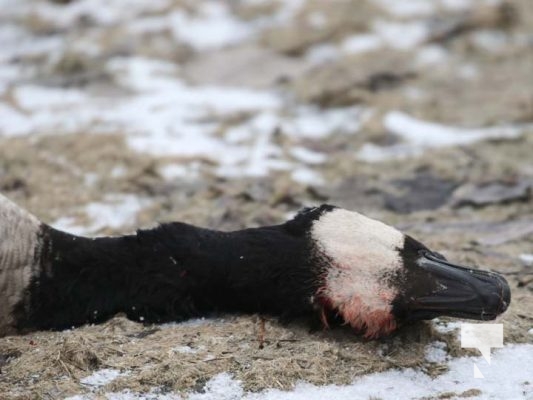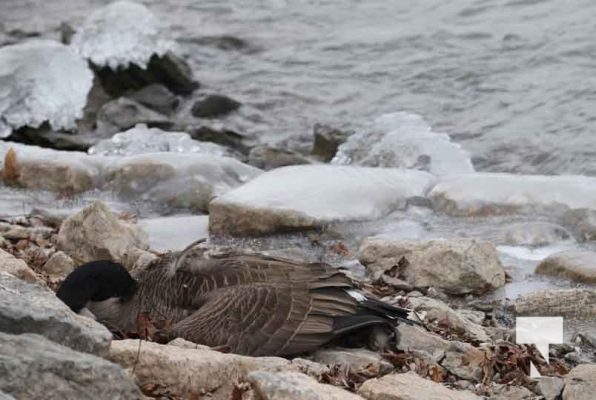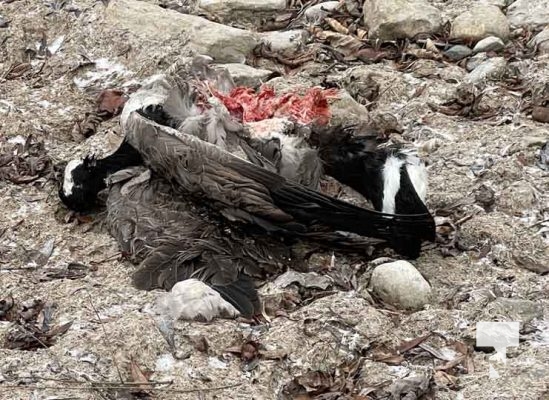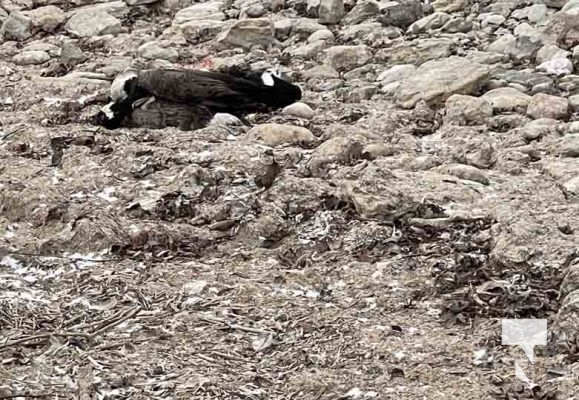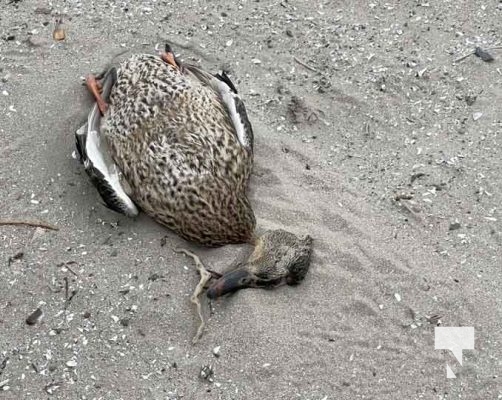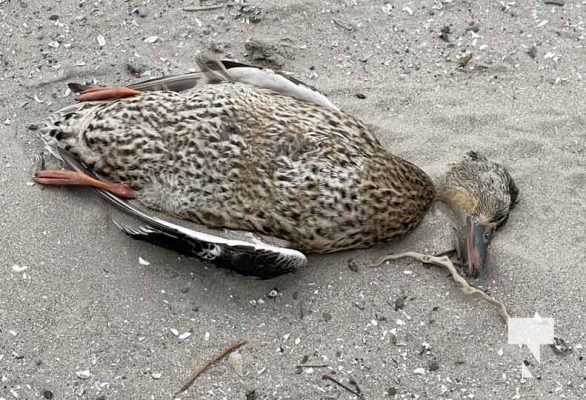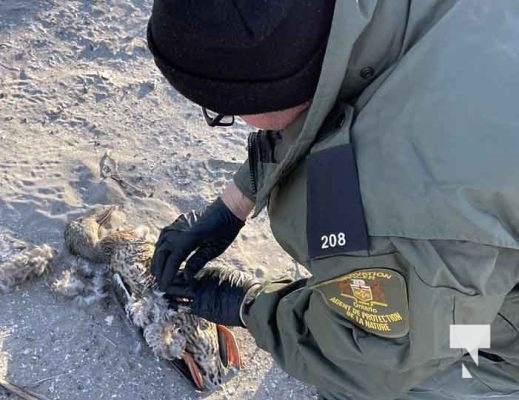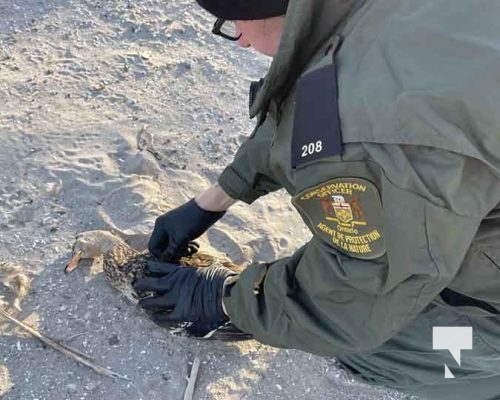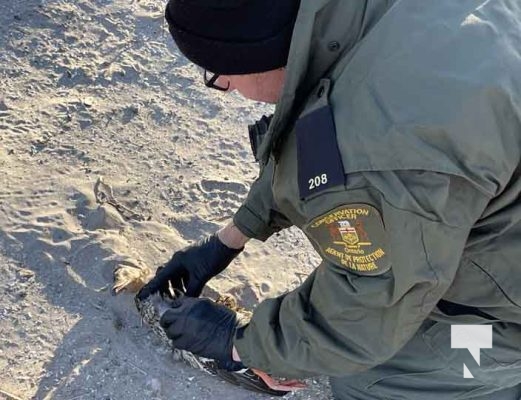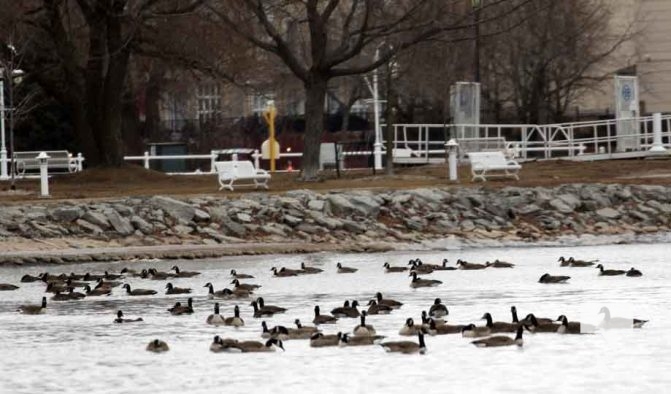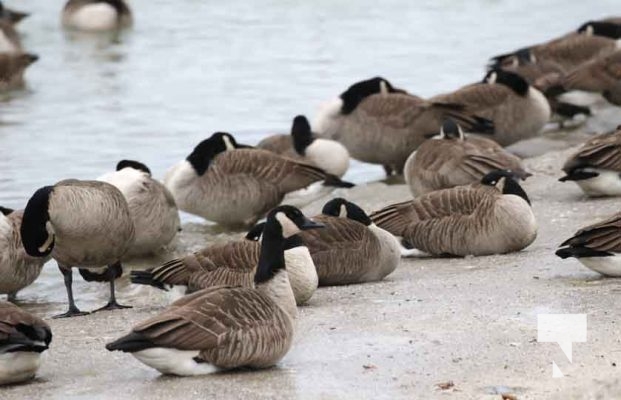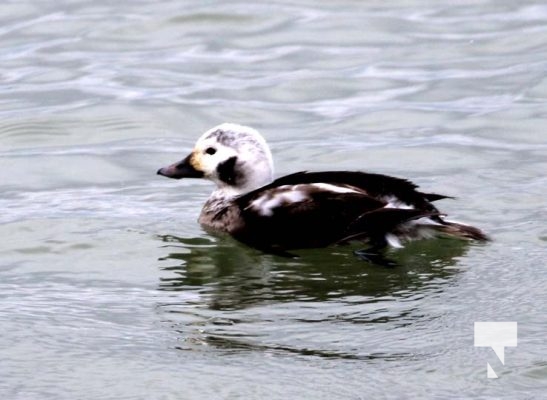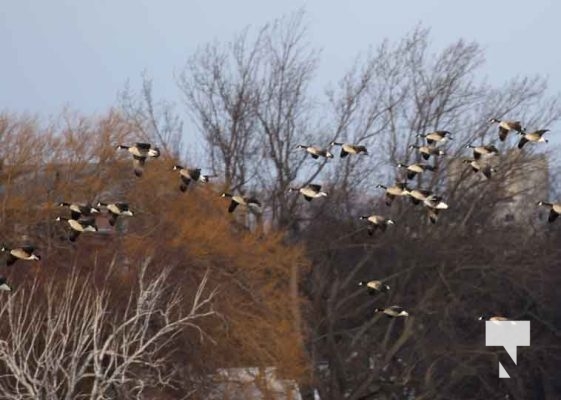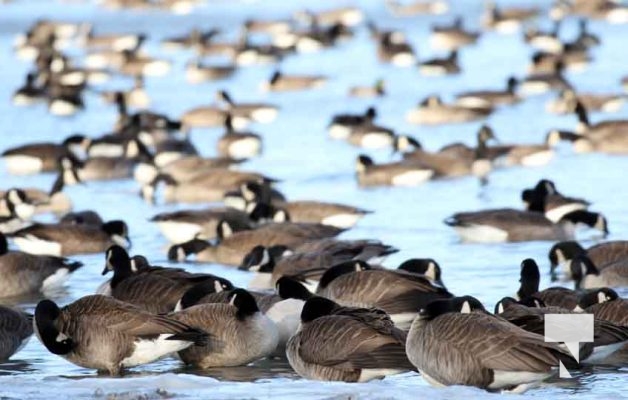Concerns are being raised after a number of birds were found dead along the shoreline in Cobourg Harbour.
On Sunday, January 5, 2025, six birds including five geese and one duck were found dead along the inner harbour where waterfowl converge during harsh weather.
Nothing has been confirmed, but one person who frequents the harbour area is concerned if the wild birds died of Highly Pathogenic Avian Influenza (HIAP) or commonly known as avian flu.
Just a few days previous the person spotted 12 dead birds around the harbour area.
Avian influenza, a type “A” influenza virus, is a contagious viral infection that can affect all species of birds but can, sometimes also, infect mammals reported the local health unit in 2023.
While all bird species are susceptible to infection, the avian influenza virus has been primarily seen in migratory birds including ducks, geese, swans, gulls and shorebirds.
Reduce your Risk and Potential Exposure to Avian Flu
It is important to be aware, informed and observant of domestic and wild birds. The local health unit is recommending the public take caution and help reduce transmission by following these guidelines:
Avoid direct contact or handling of ill or dead wild birds or animals.
If handling is necessary, wear gloves, place the dead animal in a doubled plastic bag and tie it closed then wash your hands thoroughly.
Contact your local municipality and the Canadian Wildlife Health Cooperative online or by calling 1-800-567-2033 to report ill or dead birds/animals.
Keep children and family pets (including poultry) away from wild birds, fecal matter, and bird gatherings sites.
Keep pet birds and cats indoors, and dogs on leash to limit the potential for an encounter with an infected animal.
Households that raise backyard chickens, own pet birds or maintain other flocks, should monitor them for signs of avian flu and follow preventive actions recommended by the Canadian Food Inspection Agency.
Hunters and trappers should also be careful when handling wild birds and some mammals, especially when field dressing, plucking and cleaning game. Following biosecurity measures and safe handling and cleaning guidelines such as wearing rubber gloves, using a well-ventilated area and washing your hands and surfaces, can drastically reduce your risk of exposure to avian influenza. Furthermore, it is crucial that individuals do not handle or eat any animals that appear to be sick or that have died from unknown causes.
If you become ill with influenza symptoms (e.g., fever, cough, sore throat) within 10 days after handling wild birds or other wildlife, see your health care provider and inform your healthcare provider that you have been in contact with wildlife.
If you come across sick wildlife and suspect you may have been exposed to an infectious disease (such as rabies or avian influenza), contact your local Public Health Unit or family doctor immediately.
No cases have been reported by the local health unit at this time.


